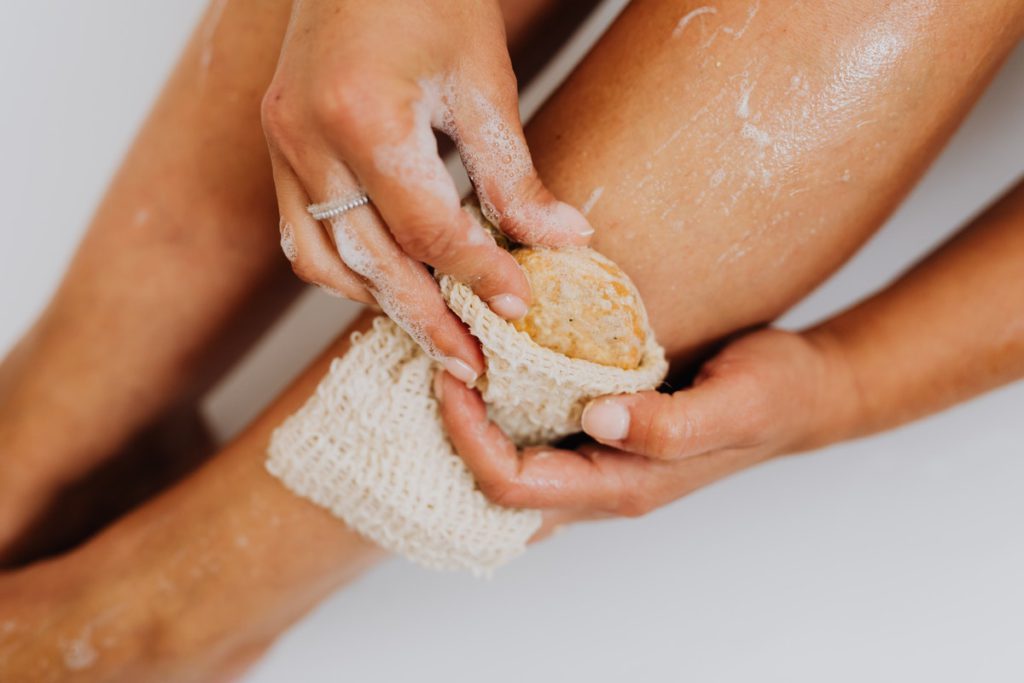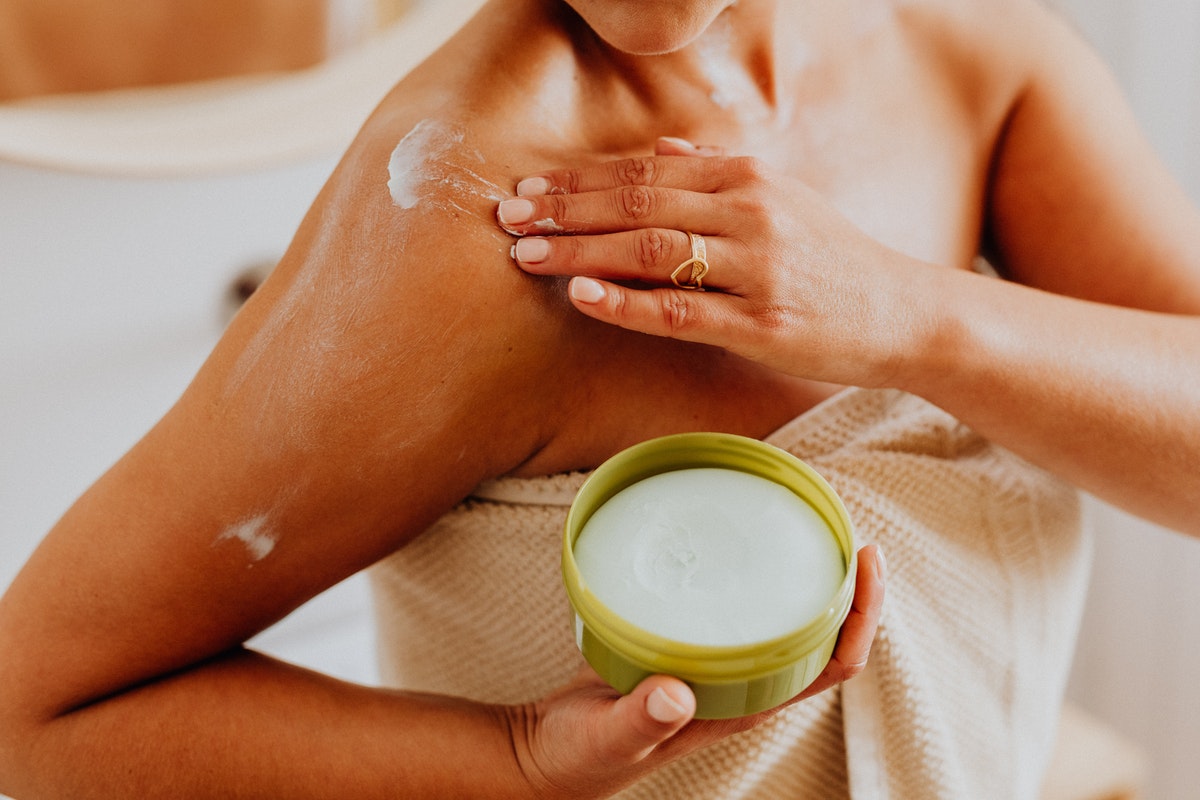
Is Body Scrubbing Essential for Skincare?
A body scrub is a physical exfoliant that strips dead skin cells, mud, and other particles off your skin. Exfoliation may be done mechanically, using an abrasive rub on the skin, or chemically, using rubs containing specific types of acids which melt away and remove the dead skin cells without the need for the rub. Exfoliation is usually thought of as a way of improving your complexion by removing dead skin cells, but it can also be used to help lessen the appearance of scars and stretch marks.
An exfoliating body scrub cleans your body of dry, dead skin cells, leaving your skin feeling refreshed, brightened, and oh-so-soft and smooth. Exfoliating the skin with a natural scrub quickly removes all dead cells and exposes new skin. An exfoliating body scrub is a crucial aspect of achieving smoother skin. It is one of the essential ingredients for maintaining healthy, glowing skin throughout the entire body.
Exfoliating your skin is essential for maintaining a healthy complexion, and body scrubs are an excellent way to slough off dead, dried skin cells. Without frequent exfoliation, your skin may get dull and flakes, but by including body scrubs in your routine, you can make sure that they are helping to uncover the healthy, bright, radiant skin that lies beneath. Exfoliating scrubs and lotions contain ingredients that slough off dead skin cells, revealing healthy skin beneath. A body scrub is a type of physical exfoliator – a skincare product that mechanically exfoliates dead skin cells above your skin.
The boost in moisture occurs because an exfoliating body scrub removes the dull, dead skin cells from the body, allowing your skin to absorb the lotions much more quickly and smoothly. Applying any moisturizer after a scrub is most effective since it is absorbed deep into your skin following the exfoliation. Scrubs also enable better absorption of moisturizers and other products, making this an essential step for anyone who has dry or sensitive skin. Once you begin using a body scrub three times per week, your skin is adequately exfoliated as pores open.
Stop using old methods that leave your skin feeling better; start using body scrubs so that you do not cause any harm to your skin.
 This is how a body scrub affects the health of your skin, and these tips will help you pick out the proper exfoliating body scrub for your skin, as well as use it properly so that you reap all of the best benefits. Exfoliating the body is easy, but it may take some experimenting to find a product and method that works best for your skin. Body exfoliation is the manual pathway to softer, more toned, glowing skin, and it yields its best results when done regularly.
This is how a body scrub affects the health of your skin, and these tips will help you pick out the proper exfoliating body scrub for your skin, as well as use it properly so that you reap all of the best benefits. Exfoliating the body is easy, but it may take some experimenting to find a product and method that works best for your skin. Body exfoliation is the manual pathway to softer, more toned, glowing skin, and it yields its best results when done regularly.
In addition to the skin-smoothing severe results, body exfoliation helps reduce the appearance of fine lines and wrinkles, lightens the skin, and makes it appear more toned. In addition, exfoliation also helps improve your skin’s appearance by decreasing pore size and evening skin tone. Exfoliation, if done correctly, can also help acne-prone skin by clearing blocked pores, which can cause breakouts. Exfoliating allows moisturizers and serums to penetrate your skin better and helps your foundation go on smoother, rather than sitting atop scaly skin.
Cleaning the face helps reduce the amount of sebum, oil, and old skin cells, which can clog pores and cause bacteria overgrowth. However, washing your face does not eliminate all bacteria – some are necessary to keep your skin healthy.
Your skin naturally sheds dead skin cells — millions each day, in fact — but some factors can make the process slower: things like aging, poor cleaning and moisturizers, and the elements, such as dry weather, sun damage, and, you guessed it, lack of exfoliation.
Removing dead skin helps your hair get to the surface rather than growing back into your skin, which causes painful, nasty red sores that can be scarred and leave a dark patch. Also, if you have hyperpigmentation spots due to exposure to the sun, the body exfoliator may lighten them by removing the dead cells in the outermost layers of your skin; when you pat your skin down with soft scrub, the microscopic particles in the scrub work to calm the skin while they get rid of the dead cells.
While your skin may be able to remove dead cells by itself (eventually), the scrub helps achieve a smooth, soft skin more quickly. As discussed earlier, a scrub removes the dry, dead skin on your outer layer of the skin, which exposes a lighter, refreshed, and smoother skin underneath. Using a scrub after shaving opens pores, allows the hair to grow properly, and keeps the hair from growing backwards. Moistened skin also allows for cleaner shaving since dirt around hair follicles is removed.
Benefits of cleansing first Cleaning the face before exfoliating will allow the chemical exfoliant to reach deeper into your skin and keep any makeup or dirt from pushing further in, mainly if you use a mechanical exfoliation. Before exfoliating, soap or a bath should cleanse any excess dirt and impurities.
While cleansing with face wash or soap helps remove impurities, sweat, and dust, body scrub or scrub provides a better, deeper cleaning for the skin. If you are one of those with oily skin or who sweats heavily in warm, humid weather, using a body scrub on an alternate day, during your bath, or even once per week may help keep your body smells down, as well as your dirtiness and oily skin.